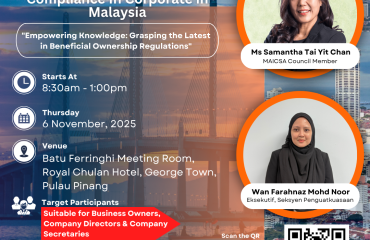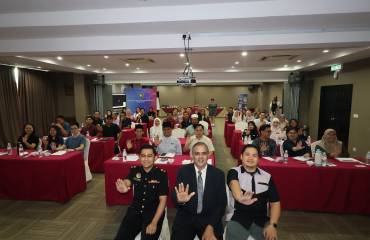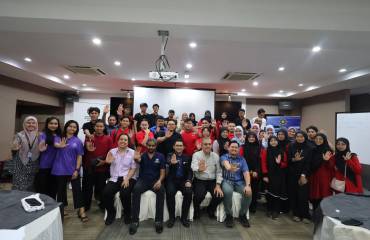
Issued in conjunction with the worldwide launch of the Transparency International Corruption Perceptions Index (CPI) 2009
The Corruption Perceptions Index (CPI)
The CPI focuses on corruption, the abuse of public power for private benefit, in the public sector. The surveys used in compiling the CPI ask about: bribery of public officials, kickbacks in public procurement, embezzlement of public funds, the strength and effectiveness of public sector anti-corruption efforts, institutions and political will, thereby covering both the administrative and political aspects of corruption.
The 2009 Results
As the world economy begins to register a tentative recovery and some nations continue to wrestle with ongoing conflict and insecurity, it is clear that no region of the world is immune to the perils of corruption, according to Transparency International’s
2009 Corruption Perceptions Index (CPI), a measure of public sector corruption released today.
“At a time when massive stimulus packages, fast-track disbursements of public funds and attempts to secure peace are being implemented around the world, it is essential to identify where corruption blocks good governance and accountability, in order to break its corrosive cycle” said Huguette Labelle, Chair of Transparency International (TI).
The vast majority of the 180 countries included in the 2009 index score below five on a scale from 0 (perceived as highly corrupt) to 10 (perceived to have low levels of corruption). The CPI measures the perceived levels of public sector corruption in a given country and is a composite index, drawing on 13 different expert and business surveys. The 2009 CPI scores 180 countries, same as the 2008 CPI.
Scoring 9.0 and higher are New Zealand, Demark, Singapore, Sweden and Switzerland. These scores reflect political stability, long established conflict of interest regulations with effective enforcement and solid, functioning public institutions. At the bottom scoring 1.5 and below are Iraq, Sudan, Myanmar, Afghanistan and Somalia.
Malaysia’s CPI score in 2009
Malaysia has scored within a narrow band of 4.9 and 5.1 since 2002 with little improvement. 2009 shows a significant drop in CPI for Malaysia not only compared to previous years but also compared to other countries. A fall of 0.6 from 5.1 in 2008
to 4.5 in 2009 is alarming not only to the people of Malaysia but also the government of the day.
There is a glaring contrast in CPI scores between Malaysia and some emerging Asian economies. From 1995 to 2009, China has improved from 1.94 to 3.6; South Korea from 4.29 to 5.5; Thailand from 2.79 to 3.4; Indonesia from 1.94 to 2.8, whereas Malaysia dropped from 5.28 to 4.5 with the greatest drop in 2009.
Malaysia’s alarming fall in CPI 2009 may be attributed to the perception of little progress in combating corruption and lack of political will in implementing effective anti -corruption measures. Examples giving rise to grave concern are no action against parties implicated in tampering in appointment of judges (Royal Commission – the Lingam tapes), the Port Klang Free Zone (PKFZ) fiasco (cost rose from an estimated RM1.1 billion (US$315 million ) to RM4.7 billion (US$1.3 billion), and may balloon further to RM12.5 billion (US$3.6 billion)), and political crossovers particularly in the State of Perak. Investigations by the Malaysian Anti-Corruption Commission (MACC) appear to focus on “small fish” and opposition politicians. The Auditor-General’s annual report highlights extraordinary public procurement abuses, but no action appears to have been taken.
However, there are positive signs. The PKFZ fiasco is being actively and vigorously investigated; police reports have been made and suits have been taken against certain parties, and corrective measures have been taken. The United Nations Convention Against Convention (UNCAC) was ratified in Sept 2008. Integrity is a Key Result Area for the Government with the CPI as a Key Productivity Index. The Prime Minister has formed a high-level task force to study and make recommendations for action to be taken on the Auditor-General’s 2008 report.
TI-M urges the government to show the political will to fight corruption. The government can ensure the independence of institutions and enforcement agencies that safeguard integrity, vigorously implement UNCAC, ensure transparency in public procurement, enact Freedom of Information and Whistleblower Protection legislation, and ensure elimination of money politics and transparency in political funding.
Issued by: Datuk Paul Low
President
Transparency International Malaysia
To download TI-M’s press statement on CPI 2009 Malaysia Results:
CPI 2009 Malaysia Results Press Statement.pdf
For additional information on the CPI methodolody and CPI global results:
CPI 2009 Press Release
CPI 2009 FAQ
CPI 2009 Short Methodology
CPI 2009 Results Presentation









